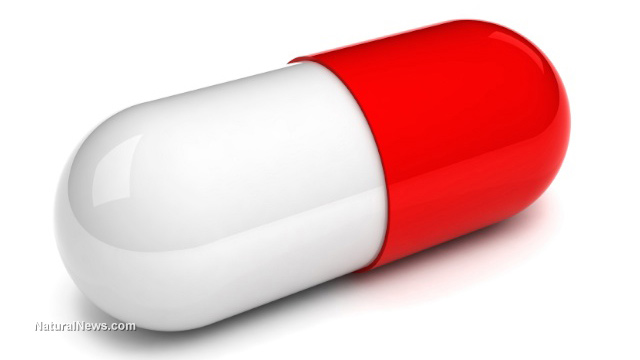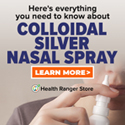Prescription drugs giving many people chemical lobotomies
Friday, September 23, 2016 by: David Gutierrez, staff writer
Tags: psychiatric drugs, SSRIs, chemical lobotomy

(NaturalNews) In a fundamental way, psychiatry has not changed from the days in which patients suffering from mental distress were given frontal lobotomies, alleges psychologist Steve Taylor of Leeds Metropolitan University in the United Kingdom, author of Back to Sanity: Healing the Madness of Our Minds.
For decades, lobotomies were standard procedure in U.S. and European psychiatry, even though there was practically no evidence that they were effective, but abundant evidence that they caused severe side effects, including brain damage and suicide. Success was achieved when a patient had become emotionally numb and docile.
Much the same could be said about modern psychiatric drugs, Taylor says; they expose people to horrific side effects and numb their ability to engage with the outside world, with little evidence that they provide any benefit.
Chemical lobotomies
Approximately one in 10 U.S. residents is currently taking an antidepressant drug, while a similar proportion of children between the ages of 5 and 17 have received a diagnosis of attention deficit hyperactivity disorder (ADHD) – and most of those children are being given psychiatric drugs as well.Much like lobotomies, antidepressants carry a list of well-proven and severe side effects, including serious weight gain, emotional detachment, loss of personality and increased risk of suicide. Additionally, the drugs are notoriously hard to stop taking, with 63 percent of patients experiencing withdrawal symptoms – including mood disorders that are often interpreted by doctors as "relapse."
Also like lobotomies, the effectiveness of antidepressants is highly dubious. The most widely prescribed class, selective serotonin reuptake inhibitors, have been shown in numerous studies to be no more effective than placebo, particularly for the minor and moderate forms of depression that comprise the majority of diagnoses.
In fact, the major evidence for the effectiveness of SSRIs is simply the theory that depression is caused by low serotonin levels in the brain. But there is likewise very little evidence for this theory, either. According to psychiatrist David Healy, the idea itself was largely invented by drug companies in the 1990s, but has now been accepted as fact by psychiatrists and laypeople alike.
The 'chemical imbalance' myth
The "serotonin deficiency" hypothesis is only an example of a much larger problem, Taylor says: the entire "chemical imbalance" myth of mental illness. Under this increasingly discredited model, mental illness is caused solely by physiological brain disorders, and as such is best treated with pharmaceutical drugs."In fact, the blanket treatment of psychological conditions as if they are medical problems, and the consequent massive overprescription of psychotropic medication, has had a much more harmful effect than lobotomies, because it is so much more widespread," Taylor writes.
But as Taylor notes, conditions such as depression are manifestly related to a wide variety of environmental factors, including but not limited to the social environment, frustration of key needs (such as belonging or self-esteem), lack of meaning or purpose in life, unfair treatment or oppression, unhelpful thought patterns, lack of contact with nature, lack of exercise and poor diet. These factors cannot be addressed by drugs.
Indeed, one of the most effective treatments for mild and moderate depression is actually cognitive therapy, which teaches people to engage in healthy thought patterns rather than indulging in pessimistic thoughts that undercut their ability to cope with life's problems.
Taylor also alleges that ADHD is wildly over-diagnosed, with children being labeled as neurologically imbalanced who are actually suffering from a deficient home environment, a lack of time for creative play, a lack of concentrative training, a poor diet or lack of contact with nature. Additionally, many restless or impulsive children are being labeled as "hyperactive" because of age-inappropriate expectations that they should be able to sit quietly in a classroom for hours at a time.
Sources for this article include:
WakingTimes.com
AAFP.org
NIMH.NIH.gov
Psychiatric drugs at FETCH.news
Get independent news alerts on natural cures, food lab tests, cannabis medicine, science, robotics, drones, privacy and more.
Take Action: Support Natural News by linking to this article from your website
Permalink to this article:
Embed article link: (copy HTML code below):
Reprinting this article:
Non-commercial use OK, cite NaturalNews.com with clickable link.
Follow Natural News on Facebook, Twitter, Google Plus, and Pinterest
- Newly released JFK files reveal Pentagon's role in creating Lyme disease and covid in the same lab
- Woman contracts WORLD'S DEADLIEST VIRUS after unknowingly being given the WRONG VACCINE
- Kiss Your Genetic Privacy Good-Bye! 23andMe Gets Green Light to Sell Your Intimate Genetic Details to Anyone They Want
- AI weather model outperforms traditional forecasts, boosts accuracy by 20%
- Revolutionize your diet with pomegranate: The miracle juice for gut health and metabolism
- Advisory: Ex-FBI agent exposes likely ATF honeypot operation selling illegal Glock switches
- The case for locking up the Deep State's biggest hatchet man...
- Analysis: The coming economic collapse, a mass uprising and Trump's three secret weapons to halt the growing revolt
- Trump administration CUTS FUNDING to Gavi, the Vaccine Alliance - a major blow to the Bill Gates-backed entity
- Sweden's migrant crisis deepens as failed green energy venture leaves thousands jobless, exposes systemic collapse
- At least 75 percent of Americans are unknowingly MEDICATED FOR STUPIDITY by fluoridated water – Utah now banning it
- Health Ranger Report: Ashton Forbes discusses TELEPORTATION ORBS and their role in MH370 disappearance
- U.K. unveils controversial pandemic preparedness tool: A double-edged sword?
- DHS Secretary Kristi Noem plans to dismantle FEMA
- Pediatric dentist exposes fluoride dangers as more states ban toxic water additive
- EPA banned chemical linked to cancer, Parkinson's and fatal heart defects in babies - now industry is lobbying to get it reinstated
- We are closer to all-out war in Europe, in Asia, and in the Middle East than most people realize
- Ontario judge rules against family of Canadian teen killed by the lethal COVID-19 injection
- Newly released JFK files reveal Pentagon's role in creating Lyme disease and covid in the same lab
- Analysis: The coming economic collapse, a mass uprising and Trump's three secret weapons to halt the growing revolt
- Trump nominates VACCINE ZEALOT Susan Monarez to lead the CDC, sidelining RFK Jr.'s reform efforts
- Trump's greatest betrayal so far: Accelerating Middle East wars, silencing dissent, and serving Zionist masters
- CDC finally halts $11 billion COVID funding scam as health officials admit the ‘pandemic’ was a fraud
- The hidden dangers in your kitchen: How cooking methods impact diabetes, cancer and aging
- BEWARE: USDA allows genetically engineered vaccines to infiltrate organic food production
- Obama accused of laundering USAID funds to fuel global protest movements, regime change operations
- DEADLY DECEPTION: How COVID vaccines increased mortality rates and why authorities hid the truth
- Here are TEN all-natural ways to protect your garden without using harmful chemicals
- Dr. Mike Yeadon releases 15-minute testimony - WATCH - about genocidal intent of COVID “vaccines”
- Festive flavors: The sweet history, nutritional profile and health benefits of pecan pie
- Big Pharma's media takeover: How drug companies bought the news - and your health
- Dr. Suzanne Humphries makes bombshell appearance on Joe Rogan podcast, exposing vaccine industry deception back to POLIOMYELITIS
- Elon Musk: Aliens could be here on Earth RIGHT NOW
- 5 Simple steps to boost your brainpower: How to strengthen executive function in a distracted world
- Trump reverses course on Gaza plan, says “nobody is expelling Palestinians”
- California's social media censorship law struck down: A victory for free speech or a threat to online safety?
- Newly released JFK files reveal Pentagon's role in creating Lyme disease and covid in the same lab
- EPA advisor admits the agency is funneling billions to climate groups ahead of Trump’s return to White House
- California's social media censorship law struck down: A victory for free speech or a threat to online safety?
- Dr. Mike Yeadon releases 15-minute testimony - WATCH - about genocidal intent of COVID “vaccines”
- The Health Ranger releases “Vaccine Zombie” song and music video, using AI-animated zombies for the music video
- Florida takes a stand: DeSantis proposes permanent ban on mRNA vaccine mandates
- The pandemic as a tool for INDOCTRINATION: Understanding “The Indoctrinated Brain” by Dr. Michael Nehls
- “Why we influenced the 2020 elections”: Facebook files reveal the coordinated effort to bury the Hunter Biden laptop story
- Mike Adams releases country western hit single: Goin’ Back in Time is Comin’ Home
- Mike Adams releases music poetry sensation: A Child of God
- Unpacking the Lies That We’ve Been Fed – new song and music video released by Mike Adams, the Health Ranger
- Michigan sheriff announces criminal investigation into 2020 election crimes, Dominion Voting Systems
- Migrants are taking advantage of recent hurricanes to scam residents and loot their homes
- House Intelligence Committee calls for the ARREST and PROSECUTION of Dr. Anthony Fauci
- Rep. Nancy Mace introduces bill to ban biological males from female facilities on federal property
- Peter Rost exposes Big Pharma corruption in his book “The Whistleblower: Confessions of a Healthcare Hitman”
- Former horse rancher and 6,000 other plaintiffs are suing Syngenta after paraquat exposure led to Parkinson's Disease
- Mike Adams releases new song and music video: Nothing More Disgusting Than a Globalist
- Red Cross issues warning to stop blood plasma donations from vaccinated people
- Scientists confirm: GENIUS brain function can be spontaneously unleashed in humans without any apparent cause
- EPA advisor admits the agency is funneling billions to climate groups ahead of Trump’s return to White House
- HYSSOP: What research reveals about the health benefits of this ancient holy herb
- Two containers with completed ballots fall out of truck in Florida
- Fully vaccinated about to see “tsunami” of illness and death, warns virologist
- Global leaders unite to clamp down on “misinformation” with UN-backed Cascais Declaration
- BREAKING: 2025 NDAA authorizes mandatory military draft of WOMEN across America… as Pentagon pursues global NUCLEAR war with both Russia and China at the same time
- Michael Yon warns of a ZIONIST TAKEOVER in Trump’s second administration
- BOMBSHELL: DNA testing kits are a SCAM to develop ethnic-specific bioweapons
- Ozempic and Wegovy weight loss drugs are injectable LIZARD VENOM PEPTIDES that may unleash a devastating wave of organ failure… side effects align with symptoms of SNAKE BITES
- Israeli soldiers accused of even more torture and abuse in the West Bank
- These 13 countries just signed an agreement to engineer a global FAMINE by destroying food supply
- NASA admits that climate change occurs because of changes in Earth’s solar orbit, and NOT because of SUVs and fossil fuels
- RFK Jr. clears key hurdle: Sen. Susan Collins backs controversial HHS nominee, signaling a new era for health policy
- Sermon 30: How Jesus reveals Caesar’s FAKE CURRENCY and FALSE AUTHORITY
- Coriander seeds: Ancient medicine backed by modern science
- Arizona officials claim Maricopa County needs 10-13 days to tabulate results of the election
Science News & Studies
Medicine News and Information
Food News & Studies
Health News & Studies
Herbs News & Information
Pollution News & Studies
Cancer News & Studies
Climate News & Studies
Survival News & Information
Gear News & Information
News covering technology, stocks, hackers, and more



"Big Tech and mainstream media are constantly trying to silence the independent voices that dare to bring you the truth about toxic food ingredients, dangerous medications and the failed, fraudulent science of the profit-driven medical establishment.
Email is one of the best ways to make sure you stay informed, without the censorship of the tech giants (Google, Apple, Facebook, Twitter, YouTube, etc.). Stay informed and you'll even likely learn information that may help save your own life."
–The Health Ranger, Mike Adams












































